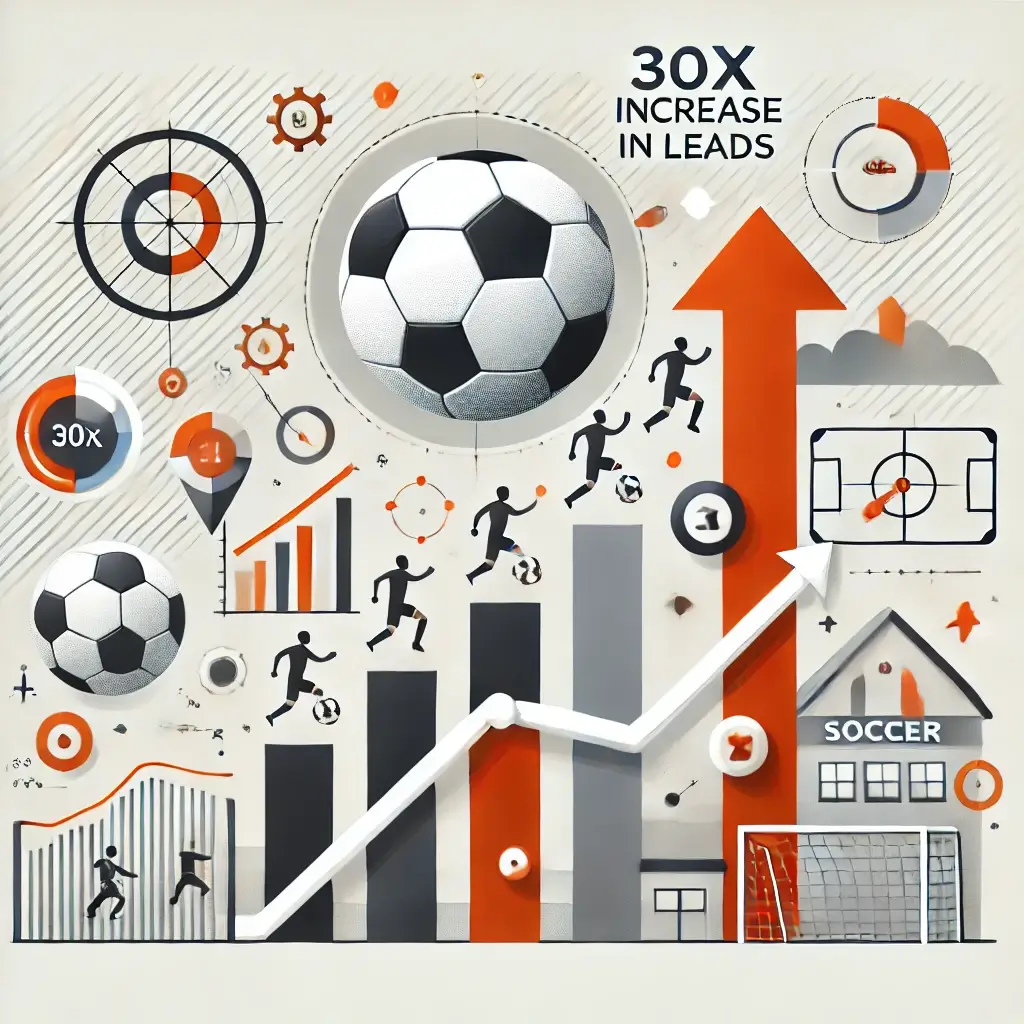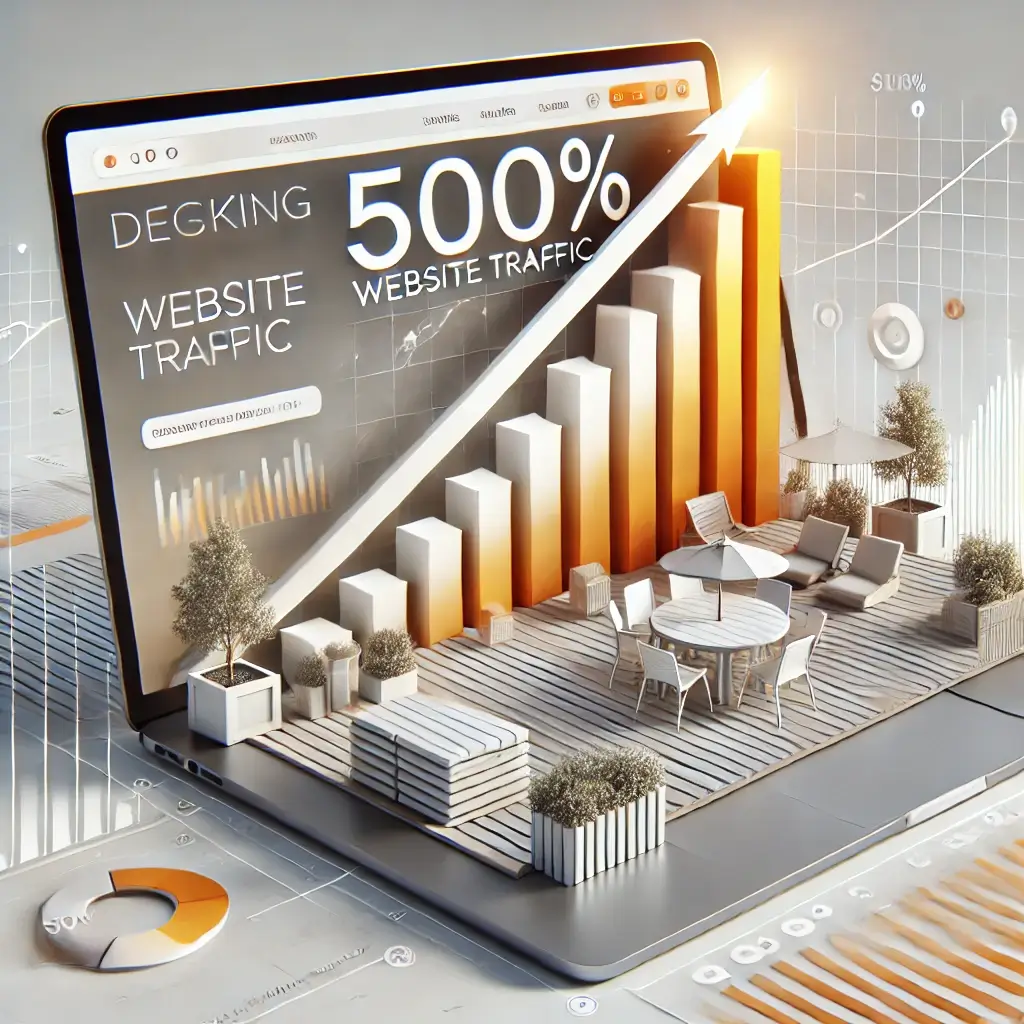
What's your thought?

Awesome! 5X begins here!
Please enter your details

"That’s disappointing, but understood."
Feel free to reach out when you're ready to grow.
UNLEASH THE POWER OF DESIGN FOR THE HOSPITALITY INDUSTRY
Transform Your Hospitality Business with Stunning Web Design
LET US CRAFT A DIGITAL EXPERIENCE YOUR GUESTS WILL LOVE WITH THE BEST WEB DESIGN COMPANY FOR THE HOSPITALITY INDUSTRY
Trusted by 1,000+ Brands as their preferred Digital Marketing agency in Mumbai. Chosen for One Reason: Results.










STRUGGLING TO DELIVER A MEMORABLE DIGITAL EXPERIENCE?
Is Your Hospitality Website Failing to Impress Your Guests?
In today’s experience-driven hospitality industry, a weak digital presence can silently hurt your brand. If your website doesn’t immediately capture attention and guide guests smoothly, you risk losing bookings and brand trust. As a Web Design Company for Hospitality Industry, we often see how outdated layouts, poor mobile experiences, and lackluster visuals prevent businesses from reaching their full potential. A hospitality website must go beyond aesthetics—it needs to be functional, responsive, and aligned with your guest expectations. Without expert Web Design Services for the Hospitality Industry, you may find your business blending into the background, while competitors attract and convert your potential guests.
Overcome Digital Design Challenges
Visual Blandness
A generic site lacks appeal—our web design company for hospitality industry brings your brand’s charm to life.
Non-Responsive Layouts
With expert web design services for hospitality industry, your site looks perfect on every device.
Complex Navigation
Our web designers for hospitality industry create seamless navigation that keeps guests engaged.
Lack of Personalization
The best web design company for hospitality industry builds tailored experiences that connect with your guests.
Elevate Your Brand with SySpree’s Expertise
Drive Engagement with Bespoke Web Design Solutions
At SySpree, we follow our unique CORE Framework – Consult, Optimize, Reinforce, Excel – to revamp your online presence. We consult to understand your brand, optimize your site for performance and aesthetics, reinforce visitor engagement through interactive features, and excel by delivering results that drive conversions.

Consult
Your vision, fully understood.

Optimize
Seamless function, beautiful form.

Reinforce
Engage guests, keep them returning.

Excel
Go beyond expectations.

Consult
Understand your unique business needs.

Optimize
Enhance functionality with innovative solutions.

Reinforce
Maintain peak performance and security.

Excel
Achieve and surpass your business objectives.

Optimize
Precision in aligning and maximizing your systems.

Consult
Expert guidance tailored to your specific goals.

Reinforce
Ensuring stability and trust in every integration.

Excel
Achieving superior results and competitive advantages.
Testimonials
What Our Clients Achieved with Us





Our Capabilities
Comprehensive Solutions Tailored for You
Custom Website Design and Development
Custom-built websites designed to match your brand and deliver real results.
E-Commerce Websites and Portals
End-to-end e-commerce websites and portals built to grow your digital business.
CMS Web Development
We create simple, scalable CMS websites that are easy to manage and update.
Website Upgrades and Redesigns
We upgrade and redesign websites to improve performance, design, and user experience.
Custom Technology Development
We create custom technology solutions that fit your business needs and drive digital growth.
Websites That Deliver Real Results
Success Stories That Inspire Confidence
From doubling conversions to reducing bounce rates, Syspree’s websites consistently deliver results. Check out our case studies for in-depth stories of businesses like yours achieving success.
Tailored Designs for Your Unique Needs
Solutions for Every Industry
Our Global Presence
Countries We are Present In

Fueling Growth Through Data Excellence
Proven Success in Numbers
OUR LEADERSHIP


Our leadership ensures Syspree delivers innovation and measurable results through expert website design and development strategies.
OUR TEAM























Our skilled team combines creativity with precision, building websites that deliver exceptional user experiences and business results
CASE STUDIES
Proven Results Across Industries
Explore how Syspree has helped businesses across industries achieve measurable growth with tailored digital marketing and web development strategies. From e-commerce to tech startups, our custom solutions deliver proven results that drive revenue, improve customer acquisition, and enhance brand visibility

CASE STUDIES
30 Times Surge in Leads within a year
Sports Coaching Company

CASE STUDIES
Astounding 800% Increase in FMCG Distributor’s Web Traffic in Just 13 Months!
FMCG Distributors

CASE STUDIES
500% Traffic boost in only 6 months
DECKING AND PATIO COMPANY

CASE STUDIES
Improve Your Traffic by 1400% In Just 2 months!
Immigration Company

CASE STUDIES
900% Traffic Surge in Just 1.5 Years
Holistic Lifestyle
e-commerce

CASE STUDIES
Double Leads for Accounting company in just 2 months
Accountants and corporate services
OUR EXPERTISE, YOUR KNOWLEDGE
Blogs, Podcasts,Vlogs

Engaging Web Elements for Memorable Visitor Interactions
Let’s Make Your Vision a Reality
Unlock Your Business Potential with Sypree
FAQ
Your Web Design for Hospitality Questions Answered
In today’s competitive hospitality market, boutique hotels and luxury stays are no longer just competing with local establishments—they are also contending with global hotel chains that have significant marketing budgets. However, a professional, strategically designed website can be the single most powerful asset to set a boutique property apart, showcase its unique story, and attract high-value guests. At SySpree, as a leading Web Design Company for Hospitality Industry, we understand how to create a digital presence that elevates a brand and builds lasting connections with travelers.
One of the biggest advantages boutique hotels and luxury stays have over larger chains is individuality. While big hotel brands rely on consistency across locations, boutique properties thrive on character—unique interiors, curated guest experiences, and a strong sense of place. A professional website becomes the stage for bringing this individuality to life. With immersive photography, cinematic video tours, and emotionally engaging copywriting, guests can experience the property’s charm before they ever step through the door. Our Web Design Services for Hospitality Industry focus on creating these personalised experiences online so potential guests immediately feel connected.
Design quality plays a crucial role in differentiation. Luxury travelers expect a luxury-level digital experience. If a website looks outdated, loads slowly, or feels cluttered, it sends the wrong message. Working with skilled Web Designers for Hospitality Industry ensures the website is modern, mobile-optimised, and visually aligned with the property’s brand. Every design element—from typography and color palette to interactive features—can be tailored to reflect the property’s identity, creating an atmosphere of sophistication and trust.
Functionality is equally important. Larger chains often use advanced booking systems and loyalty integrations. A boutique hotel can match, and even outperform, these with the help of the Best Web Design Company for Hospitality Industry. Custom booking engines, live availability calendars, automated confirmations, and secure payment options can be built directly into the site, making the booking process seamless and convenient. This not only improves guest experience but also increases direct bookings, which means higher profit margins.
Another key factor is storytelling. Guests choosing a boutique property are often looking for more than just accommodation—they want an experience. A professional website can tell the story behind the property, from its history and architectural details to the people who run it and the values it stands for. These narratives build emotional connections and help guests feel that they are part of something special. At SySpree, we specialise in weaving these stories into design and content strategies, ensuring that every page reflects the personality and ethos of the property.
A well-structured, fast, and mobile-responsive site also supports better performance in search engines. Google rewards websites that load quickly, adapt seamlessly to different devices, and offer a frictionless user journey. By working with experienced Web Designers for Hospitality Industry, boutique hotels can ensure they meet these standards, which not only improves guest satisfaction but also increases organic visibility in search results.
Data-driven insights are another advantage. A professional website can integrate analytics tools that track visitor behaviour, identify which offers attract the most attention, and reveal where potential guests drop off in the booking process. These insights empower boutique hotels to refine their marketing strategy, improve conversion rates, and target campaigns more effectively.
Search engine optimisation (SEO) is particularly critical in hospitality. Many boutique hotels struggle to appear in top search results due to a lack of optimisation. The Best Web Design Company for Hospitality Industry understands how to strategically use keywords, structure site navigation, and create content that is both user-friendly and search-friendly. This ensures the website not only looks beautiful but also reaches the right audience organically.
Promotions and exclusive packages can also be showcased more effectively through a custom-designed site. While larger hotel chains might promote generic discounts, boutique hotels can highlight tailored offers—like wine-tasting weekends, spa retreats, or cultural experiences—that appeal to niche audiences. The website becomes the main hub for these campaigns, with persuasive visuals and calls to action that encourage direct bookings.
Trust is essential when attracting luxury travelers. High-quality websites communicate professionalism, credibility, and attention to detail. Incorporating guest testimonials, awards, media features, and authentic photography can reassure potential guests that they are making the right choice. Skilled Web Designers for Hospitality Industry know how to position these trust signals in a way that strengthens brand credibility without overwhelming the design.
Ultimately, while large hotel chains rely on scale and standardisation, boutique hotels and luxury stays win through authenticity, personalisation, and charm. A professionally designed website allows them to amplify these strengths, presenting a compelling alternative to big-brand sameness. At SySpree, our Web Design Services for Hospitality Industry are crafted to deliver an immersive, functional, and high-converting online experience—helping boutique hotels stand out, attract the right guests, and build loyalty in an increasingly competitive market.
In the hospitality industry, the guest journey begins long before check-in. It often starts with an online search, continues with a website visit, and culminates in a booking. For boutique hotels, resorts, and luxury stays, having a seamless and efficient booking experience on their website is critical for converting visitors into confirmed guests. This is where integrated booking systems and Customer Relationship Management (CRM) tools play a transformative role. At SySpree, as a trusted Web Design Company for Hospitality Industry, we specialise in building websites that don’t just look beautiful but also work as powerful booking and guest management platforms.
An integrated booking system allows guests to check real-time availability, select their preferred room or package, and confirm their booking directly on the property’s website. By removing the need to rely solely on third-party booking sites, hotels gain more control over their guest relationships and reduce commission fees. Our Web Design Services for Hospitality Industry are tailored to embed booking engines seamlessly into the website’s design, ensuring the process feels like a natural part of the guest’s journey rather than a clunky add-on.
The advantages of having an integrated booking system are immense. First, it significantly improves the guest experience by offering immediate confirmation, clear pricing, and transparent policies. Second, it helps hotels maintain brand consistency, as the booking interface can be customised to match the overall website design. Skilled Web Designers for Hospitality Industry understand how to balance aesthetics with usability, ensuring that booking forms are intuitive, mobile-friendly, and accessible for all users.
CRM tools, on the other hand, go beyond the booking stage. A CRM stores guest information, preferences, and booking history in one centralised system. This data is invaluable for personalising future interactions—whether it’s sending a tailored email with a special offer for a returning guest or noting a preference for a particular type of pillow. The Best Web Design Company for Hospitality Industry can integrate CRM systems directly into the website, creating a smooth flow of data from the booking form to the property’s management system.
One of the biggest benefits of integrating CRM tools with booking systems is automation. For example, when a guest makes a reservation, the system can automatically send a confirmation email, schedule a pre-arrival reminder, and follow up with a post-stay feedback request. This not only saves staff time but also ensures consistent, professional communication. At SySpree, we build automation into our Web Design Services for Hospitality Industry so boutique hotels can focus more on delivering exceptional guest experiences rather than manually handling routine tasks.
From a technical standpoint, integration can be done through API connections, plugins, or custom development, depending on the property’s needs and budget. For smaller boutique hotels, cloud-based booking platforms with built-in CRM capabilities can be embedded directly into the site. For larger or more complex operations, a fully customised solution may be more appropriate, ensuring complete control over data, design, and functionality. As experienced Web Designers for Hospitality Industry, we guide clients through this decision-making process, helping them choose the right tools for their specific business goals.
Security is a critical factor in these integrations. Guests are entrusting hotels with sensitive information, from personal contact details to payment data. A professional Web Design Company for Hospitality Industry ensures that all booking and CRM integrations are compliant with data protection regulations, use secure encryption methods, and are regularly updated to protect against cyber threats. This is especially important for luxury stays, where guests expect not only premium service but also robust privacy protections.
Another advantage of integrating booking and CRM tools is the ability to gather valuable analytics. Hotels can track metrics such as booking lead times, average spend per booking, and most popular packages. This data allows for more targeted marketing campaigns and better forecasting. For instance, if analytics show that most guests book weekend stays two weeks in advance, the hotel can launch special promotions during that booking window to boost occupancy.
Integration also opens up opportunities for upselling and cross-selling. A smart booking system can suggest room upgrades, dining packages, or spa treatments during the reservation process, increasing revenue per booking. Similarly, CRM data can be used to send targeted offers to past guests based on their previous stays. At SySpree, our Web Design Services for Hospitality Industry are built with these revenue-enhancing opportunities in mind, ensuring that every interaction with the website has the potential to increase profitability.
For boutique hotels competing with large chains, these integrations level the playing field. While major hotel brands often have sophisticated proprietary booking and CRM systems, smaller properties can achieve similar functionality through well-chosen third-party tools integrated seamlessly into a custom website. This means guests receive the same level of convenience and professionalism they would expect from a big brand, but with the added warmth and personalisation of a boutique experience.
The user interface is another area where a professional Web Design Company for Hospitality Industry makes a difference. Booking forms should be clear and concise, avoiding unnecessary steps that could cause drop-offs. Mobile responsiveness is essential, as many travellers now make reservations directly from their smartphones. By designing mobile-first booking experiences, hotels can capture last-minute bookings from travellers on the go.
Post-booking engagement is equally important. An integrated CRM allows hotels to send guests information about their stay, such as directions, check-in instructions, and local recommendations. After departure, the same system can be used to request reviews, which not only provide valuable feedback but also enhance the property’s online reputation. Experienced Web Designers for Hospitality Industry know how to incorporate these features into the website in a way that feels natural and non-intrusive.
In conclusion, integrating booking systems and CRM tools into hospitality websites is no longer a luxury—it’s a necessity for delivering exceptional guest experiences, driving direct bookings, and building lasting relationships. By partnering with the Best Web Design Company for Hospitality Industry, boutique hotels and luxury stays can ensure these integrations are not only technically sound but also beautifully designed and fully aligned with their brand. At SySpree, our approach combines creativity, functionality, and strategy, helping hospitality businesses transform their websites into powerful revenue-generating and guest-engagement platforms.
For boutique hotels, resorts, and luxury stays, the ultimate goal of their online presence is to convert curious visitors into confirmed guests. While beautiful photography and a compelling brand story are essential, the real driver of results is how effectively the website guides users from interest to booking. This is where working with a specialised Web Design Company for Hospitality Industry makes all the difference. At SySpree, we focus on building websites that don’t just impress visually—they’re designed to significantly increase online bookings through strategic design, technology, and optimisation.
The first way a specialised company improves bookings is through user-centric design. Generalist web designers may create attractive sites, but they may not understand the specific booking behaviours of hospitality guests. Experienced Web Designers for Hospitality Industry know that potential guests often arrive on a site with questions: availability, pricing, amenities, and location. If these answers aren’t easy to find, users leave. By strategically placing booking calls-to-action, making room options clear, and ensuring key details are always accessible, a specialised design makes it effortless for guests to proceed to reservation.
Speed and mobile optimisation are equally important. Many travellers browse and book on mobile devices, sometimes while travelling. A slow or unresponsive website can lose bookings in seconds. The Best Web Design Company for Hospitality Industry ensures that every page loads quickly, adapts to any screen size, and allows guests to complete a booking without friction. Mobile-first booking flows, thumb-friendly navigation, and fast-loading images help capture last-minute reservations from users who are ready to commit.
Another critical factor is integrated booking systems. Instead of redirecting users to third-party sites, a specialised Web Design Company for Hospitality Industry embeds booking engines directly into the website. This reduces drop-offs, keeps the brand experience consistent, and eliminates the commissions charged by Online Travel Agencies (OTAs). Direct bookings mean more revenue and better control over guest relationships. At SySpree, our Web Design Services for Hospitality Industry include seamless booking integrations that maintain the look and feel of the hotel’s brand while offering guests a smooth reservation process.
The layout and visual hierarchy of a hospitality website also impact booking rates. Professional Web Designers for Hospitality Industry know how to guide the eye naturally towards booking options without overwhelming the user. Hero banners with clear booking buttons, prominent placement of limited-time offers, and simple comparison tools for room types encourage decision-making.
Trust-building elements are another booking driver. High-value guests want reassurance before making a commitment. A specialised Web Design Company for Hospitality Industry incorporates guest reviews, awards, professional photography, and even virtual tours directly on the site. These elements reduce hesitation and build the confidence needed to finalise a booking.
In addition, a hospitality-specific approach includes personalisation features. By integrating CRM tools with the booking process, hotels can display tailored offers for returning guests or suggest upgrades based on previous stays. This not only improves the guest experience but also increases average booking value. Our Web Design Services for Hospitality Industry are built with these revenue-focused features in mind, ensuring every website interaction has the potential to boost conversion rates.
SEO plays a hidden yet crucial role in improving bookings. If a property doesn’t appear in search results, it won’t get the traffic needed to convert visitors. The Best Web Design Company for Hospitality Industry ensures the site is optimised for search from the ground up—fast loading, keyword-rich content, structured data, and location-based optimisation all contribute to higher visibility. More visibility means more traffic, and more targeted traffic leads to higher booking rates.
Content strategy is also key. Rather than simply listing room types and amenities, specialised Web Designers for Hospitality Industry work with content teams to create pages that inspire travel—destination guides, seasonal promotions, and experience-focused storytelling all encourage guests to book directly. This positions the property not just as a place to stay, but as the centrepiece of their trip.
Another booking-enhancing strategy is reducing friction in the reservation process. Every extra step or confusing field in a booking form is a potential drop-off point. A professional Web Design Company for Hospitality Industry streamlines the process—removing unnecessary fields, enabling guest checkouts for speed, and allowing multiple payment options. This ensures that once a guest has decided to book, nothing gets in their way.
Data analytics also plays a role in improving bookings. Our Web Design Services for Hospitality Industry integrate tracking tools that monitor user behaviour—where visitors spend the most time, where they abandon the booking process, and which promotions convert best. With these insights, boutique hotels can make data-driven changes to increase conversions. For example, if many users leave during payment, adding alternative payment methods could recover lost bookings.
Specialised hospitality web design also focuses on upselling opportunities within the booking process. This could include offering breakfast packages, spa treatments, or local tours as add-ons at checkout. These small touches can significantly increase per-booking revenue while enhancing the guest’s stay.
Even the psychological aspects of design play a part. Scarcity indicators (“Only 2 rooms left for these dates”) or time-limited offers create urgency without being pushy. The Best Web Design Company for Hospitality Industry uses these tactics ethically to encourage quicker decision-making.
Furthermore, specialised designers understand the role of social proof and brand storytelling in driving bookings. By presenting the property as a one-of-a-kind experience—through carefully crafted visuals, guest testimonials, and authentic narratives—guests are more likely to form an emotional connection that leads to a reservation.
Ultimately, increasing online bookings is about creating a website that combines emotional appeal with functional excellence. A generalist design might make a hotel look attractive, but a specialised Web Design Company for Hospitality Industry builds sites that actively guide users toward booking decisions at every stage of their visit.
At SySpree, we merge beautiful, brand-aligned design with high-performance technology to create websites that are not only memorable but also measurable in their results. Our Web Design Services for Hospitality Industry are built on the understanding that every click, every scroll, and every visual cue contributes to whether a guest chooses to book. By refining these details and aligning them with the psychology of travel booking, we help boutique hotels and luxury stays outperform competitors and maximise their online revenue potential.
In the hospitality industry, having a stunning website is only half the battle. If potential guests can’t find the site through search engines, the opportunities for direct bookings are greatly reduced. Search Engine Optimization (SEO) ensures that when travellers search for accommodations, your property appears prominently in their results. For boutique hotels, luxury stays, and resorts, following SEO best practices is essential for standing out against large chains and online travel agencies. As a leading Web Design Company for Hospitality Industry, SySpree combines design excellence with SEO expertise to ensure hospitality websites rank well, attract the right audience, and convert visits into bookings.
- Start with a strong technical foundation
Before focusing on content, SEO begins with the technical health of the website. This includes fast loading speeds, secure HTTPS encryption, mobile responsiveness, and clean code. Search engines reward sites that deliver a smooth, reliable user experience. Professional Web Designers for Hospitality Industry understand how to optimise site architecture so pages are easy for both guests and search engines to navigate. A fast, technically sound site not only ranks higher but also keeps visitors engaged long enough to complete bookings.
- Keyword research tailored to hospitality
Choosing the right keywords is critical. A boutique hotel shouldn’t just target “luxury hotel” but should focus on location-specific and experience-based searches, such as “boutique beachfront hotel in Goa” or “luxury spa retreat in Tuscany.” The Best Web Design Company for Hospitality Industry ensures keywords are integrated naturally into page titles, headings, meta descriptions, and content without overstuffing. The goal is to match what real travellers are searching for while keeping the text authentic and engaging.
- Optimise on-page elements
On-page SEO involves optimising each page for both users and search engines. This includes writing descriptive meta titles, crafting compelling meta descriptions, using header tags logically, and ensuring image alt text accurately describes visuals. Our Web Design Services for Hospitality Industry focus on these small but important details, which collectively improve visibility and click-through rates. Well-structured URLs, breadcrumb navigation, and logical internal linking further help search engines understand the site’s hierarchy.
- Create high-quality, relevant content
Content is one of the most powerful drivers of SEO. Beyond standard pages like “Rooms” or “Amenities,” hospitality websites benefit from creating valuable resources that inspire and inform travellers. This could include blog posts about local attractions, seasonal event guides, or travel tips. By publishing such content, a hotel can rank for a wider range of search terms, positioning itself as an authority in the destination. Professional Web Designers for Hospitality Industry work with content teams to ensure these resources are visually engaging and easy to access.
- Local SEO for targeted visibility
Since most hotel bookings are location-driven, local SEO is a must. This involves optimising the site for local search queries, maintaining an up-to-date Google Business Profile, and encouraging positive guest reviews. The Best Web Design Company for Hospitality Industry ensures that location-specific keywords are strategically placed throughout the site, including in headings, image alt text, and body content. Embedding maps, listing nearby attractions, and including local event calendars also help guests—and search engines—see the property as part of the destination experience.
- Mobile-first design
Google uses mobile-first indexing, meaning it primarily evaluates the mobile version of a website for ranking purposes. A hospitality site must not only be mobile-friendly but also deliver a fast, intuitive booking experience on smaller screens. Our Web Design Services for Hospitality Industry prioritise mobile-first layouts, responsive images, and simplified navigation so guests can easily check availability and book directly from their phones.
- Image optimisation without losing quality
Photography is central to hospitality marketing, but large image files can slow down a website, hurting SEO. Web Designers for Hospitality Industry know how to compress and optimise images without sacrificing visual quality. Using next-gen formats like WebP, implementing lazy loading, and adding descriptive alt tags help maintain both aesthetics and performance.
- Structured data for rich search results
Structured data, or schema markup, helps search engines better understand a website’s content. For hotels, this can include details like room types, pricing, availability, and reviews. Implementing schema can lead to rich snippets in search results, which attract more clicks. The Best Web Design Company for Hospitality Industry incorporates structured data as part of the development process to improve search visibility and click-through rates.
- Build authoritative backlinks
Links from reputable websites signal to search engines that a site is trustworthy. In the hospitality sector, this could mean being featured in travel blogs, online magazines, or tourism websites. While link building often happens outside of web design, a well-structured and visually appealing site created by expert Web Designers for Hospitality Industry makes it easier to attract media coverage and partnerships.
- Monitor performance and adapt
SEO is not a one-time task but an ongoing process. Tracking keyword rankings, analysing traffic sources, and monitoring booking conversions provide valuable insights. Our Web Design Services for Hospitality Industry include integrating analytics tools so hotel owners can measure the impact of SEO efforts and adjust strategies accordingly.
- Prioritise user experience alongside SEO
Search engines increasingly reward sites that deliver value to visitors. This means reducing intrusive pop-ups, ensuring easy navigation, and providing clear calls to action. The Best Web Design Company for Hospitality Industry balances SEO best practices with user experience principles, creating websites that rank well and convert visitors into guests.
- Leverage multilingual and multi-currency features
For properties attracting international guests, offering content in multiple languages and displaying rates in different currencies can expand reach. This also improves SEO by allowing the site to rank for searches in other languages. Web Designers for Hospitality Industry can implement these features without compromising performance or design.
- Keep content fresh and updated
Outdated information can hurt both SEO and guest trust. Regularly updating seasonal offers, event listings, and blog posts signals to search engines that the site is active and relevant. The Best Web Design Company for Hospitality Industry builds content management systems that make updates quick and easy, empowering hotels to keep their websites current.
In conclusion, effective SEO in hospitality web design is about more than just keywords—it’s about creating a technically sound, content-rich, user-friendly website that search engines trust and travellers love. By partnering with a specialised Web Design Company for Hospitality Industry like SySpree, boutique hotels and luxury stays can ensure their site ranks well, attracts the right audience, and maximises direct bookings. Our Web Design Services for Hospitality Industry combine creative storytelling, technical expertise, and data-driven optimisation to deliver lasting results in an increasingly competitive online travel market.
The hospitality sector in 2025 is more competitive than ever, with guests expecting not only exceptional in-person experiences but also seamless, visually stunning, and highly functional digital interactions. A hotel’s website is often the first touchpoint with potential guests, and its design plays a critical role in shaping perceptions and influencing booking decisions. At SySpree, as a leading Web Design Company for Hospitality Industry, we keep a close eye on the latest trends to ensure our clients’ websites remain modern, relevant, and effective in driving direct bookings. Here are the key website design trends transforming hospitality in 2025.
- Immersive visual storytelling
High-quality, immersive visuals have always been important, but in 2025, hospitality websites are embracing full-screen video backgrounds, interactive room tours, and 360-degree virtual walkthroughs. These tools allow potential guests to experience the property before they arrive. Skilled Web Designers for Hospitality Industry integrate these visuals in a way that maintains fast load times and mobile responsiveness, ensuring guests can explore without delays. The aim is to convey atmosphere, style, and exclusivity through visual experiences that build emotional connections.
- Personalisation through AI
Artificial intelligence is enabling unprecedented personalisation in hospitality websites. From customised room suggestions based on browsing history to dynamic pricing displays, AI ensures that each guest sees the most relevant content. The Best Web Design Company for Hospitality Industry leverages AI tools to deliver tailored recommendations, making guests feel understood and valued even before booking. Personalisation extends to promotional offers, upsells, and even suggested local activities, all designed to increase engagement and conversions.
- Integrated booking and CRM systems
Direct booking functionality continues to be a top priority, but in 2025, the trend is toward deeper integration with CRM tools. Our Web Design Services for Hospitality Industry include booking systems that not only confirm reservations but also store guest preferences, enabling hotels to personalise communications and create loyalty-driven offers. This integration enhances efficiency for staff and convenience for guests, helping properties compete with large online travel agencies.
- Sustainable and ethical branding
Travelers are increasingly prioritising sustainability, and hospitality websites are reflecting this shift. Green certifications, eco-friendly practices, and locally sourced partnerships are highlighted through design and storytelling. Web Designers for Hospitality Industry use earthy colour palettes, organic textures, and nature-inspired imagery to align with these values while ensuring the message feels authentic rather than performative. Sustainability-focused landing pages also improve SEO for guests searching specifically for eco-conscious stays.
- Mobile-first and micro-interactions
With mobile bookings continuing to rise, 2025’s hospitality websites are designed mobile-first, ensuring smooth navigation, quick loading, and easy thumb-friendly booking buttons. Micro-interactions—small animations or design responses when users hover or tap—are being used to guide guests through the site and add a layer of sophistication. The Best Web Design Company for Hospitality Industry understands that these details can make the booking process more intuitive and enjoyable, encouraging guests to complete their reservation.
- Minimalist luxury design
Minimalism remains a strong trend, but in the luxury hospitality space, it’s evolving into “minimalist luxury.” This approach focuses on spacious layouts, high-end typography, and restrained use of colour, allowing imagery and key messages to stand out. Our Web Design Services for Hospitality Industry adopt this style for properties wanting to project elegance, sophistication, and calm, particularly in boutique and high-end segments.
- Interactive destination content
Guests increasingly want to know what they can experience beyond the property itself. Interactive destination maps, event calendars, and curated local guides are becoming standard. Web Designers for Hospitality Industry create dynamic content hubs where guests can explore local culture, attractions, and experiences. This not only positions the hotel as a destination expert but also boosts SEO with location-based content.
- Accessibility as a priority
Website accessibility is no longer optional—it’s an expectation. In 2025, hospitality websites are ensuring compliance with WCAG guidelines, providing alt text for images, offering keyboard navigation, and maintaining strong colour contrast for readability. The Best Web Design Company for Hospitality Industry builds accessibility into every stage of design, ensuring that all guests, regardless of ability, can explore and book accommodations with ease.
- Voice search optimisation
With the rise of smart devices and voice assistants, voice search is influencing SEO and design strategies. Guests might search “luxury beachfront resort in Bali” using their voice, and websites optimised for natural language queries will benefit. Our Web Design Services for Hospitality Industry ensure that page structures and content are adapted for conversational search, capturing this growing segment of users.
- Real-time chat and concierge services
Live chat has evolved into fully integrated virtual concierge systems. These allow guests to ask questions, request services, and even make reservations directly through the website. Web Designers for Hospitality Industry integrate chat tools that blend seamlessly with the site’s design and brand tone, offering instant support and removing barriers to booking.
- Data-driven design improvements
In 2025, design decisions are increasingly based on analytics and user behaviour data. Heatmaps, A/B testing, and booking funnel analysis help hotels understand what works and what doesn’t. The Best Web Design Company for Hospitality Industry uses these insights to continually refine website layouts, calls-to-action, and promotional placements for maximum impact.
- Content that inspires and informs
Hospitality websites are moving beyond static content to include regularly updated blogs, video stories, and guest features. This approach not only boosts SEO but also gives repeat visitors a reason to return to the site. Our Web Design Services for Hospitality Industry create content frameworks that make publishing fresh material easy, ensuring the site remains engaging and search-friendly.
- Secure, frictionless payments
Trust in online transactions is crucial. Hotels are implementing secure, multiple payment options—including digital wallets and cryptocurrency acceptance—to meet guest preferences. Web Designers for Hospitality Industry integrate these systems into booking flows without disrupting the visual or functional experience.
- Multi-language and multi-currency capability
As international travel rebounds, offering websites in multiple languages and displaying rates in various currencies is becoming standard. The Best Web Design Company for Hospitality Industry ensures these features are implemented without slowing the site or compromising design, helping properties attract a global audience.
In conclusion, the website design trends of 2025 in the hospitality sector are driven by a combination of technological innovation, guest expectations, and a focus on meaningful brand storytelling. A property’s website is no longer just a digital brochure—it’s a fully interactive, personalised booking platform that reflects the experience guests can expect in person. By partnering with a specialised Web Design Company for Hospitality Industry like SySpree, boutique hotels and luxury stays can leverage these trends to remain competitive, deliver exceptional online experiences, and increase direct bookings. Our Web Design Services for Hospitality Industry are designed to integrate the latest innovations while staying true to each brand’s identity, ensuring hospitality businesses not only keep up with trends but lead them.
In the hospitality industry, your website is your most powerful sales tool. Long before a guest steps foot in your hotel, they experience your brand through your website. In 2025, successful hospitality websites are not just visually appealing—they are engineered to convert. High-converting sites turn browsers into bookers by blending smart design, intuitive navigation, compelling content, and advanced functionality. And that’s where working with a specialized web design company for the hospitality industry makes all the difference.
To truly compete in today’s digital-first market, your hospitality website must offer more than aesthetics. It needs to attract, engage, and guide visitors through the booking process effortlessly. Here are the essential features that top-performing, high-converting hospitality websites have in 2025—and how web designers for the hospitality industry bring them to life.
1. Mobile-First, Responsive Design
Over 70% of hotel bookings now originate from mobile devices. That means your site must be designed for mobile-first interactions, not simply adjusted for smaller screens. A high-converting hospitality website is:
Fully responsive across all devices
Optimized for thumb navigation
Equipped with sticky mobile-friendly booking buttons
Easy to load even on slower connections
Leading web design services for the hospitality industry make mobile UX a top priority, ensuring that mobile users experience the same smooth journey as desktop visitors—with faster performance and smarter layouts.
2. Seamless, Integrated Booking Engine
A disconnected or outdated booking system is one of the biggest conversion killers in hospitality. The best web design company for hospitality industry brands ensures that your booking engine is:
Natively embedded into your website
Fast, intuitive, and secure
Capable of showing real-time availability and pricing
Customizable with add-ons like breakfast, tours, or spa packages
A frictionless booking experience boosts conversion rates dramatically, especially when guests can reserve their stay in under three steps with minimal data entry.
3. Persuasive CTAs Strategically Placed
Calls to Action (CTAs) are critical to conversions. A high-converting website doesn’t rely on one “Book Now” button hidden in the menu. Instead, effective web designers for the hospitality industry place CTAs:
On the homepage banner
Below every room listing
In mobile sticky bars
Inside testimonial sliders
On blog pages or offer sections
Each CTA is personalized based on user intent and stage in the journey—whether they’re browsing for inspiration or ready to make a reservation.
4. High-Quality Visual Content
Guests buy with their eyes, especially in the hospitality sector. Stunning imagery and immersive media give life to your brand and offerings. The best web design companies for hospitality industry use:
Hero videos or cinemagraphs on the homepage
High-resolution gallery sections
360° virtual tours of rooms and amenities
Professionally curated imagery optimized for performance
Visual storytelling plays a key role in capturing emotion, setting expectations, and moving guests toward action.
5. Real-Time Personalization
In 2025, hospitality websites are no longer one-size-fits-all. Using cookies, geolocation, and browsing behavior, modern websites adapt content dynamically. Personalized elements may include:
Showing offers based on location (e.g., “Exclusive Offer for UAE Guests”)
Remembering recently viewed rooms
Suggesting upgrades or packages during booking
Personalization creates relevance, builds trust, and increases conversion rates—all facilitated by advanced web design services for the hospitality industry.
6. Compelling Copy That Converts
Every word on a high-performing hospitality site should be doing a job—selling a feeling, reducing doubt, or guiding action. The tone should reflect the brand’s personality, whether that’s luxurious, adventurous, or homely.
Professional web design companies for the hospitality industry collaborate with conversion copywriters to craft:
Benefit-driven room descriptions
Emotion-rich homepage headers
Guest-centric amenities overviews
SEO-friendly content that ranks and converts
Clear, persuasive, and helpful language is a cornerstone of successful digital hospitality branding.
7. Trust Signals and Social Proof
Guests want reassurance before booking. They want to know others have had a good experience—and that your property is trustworthy. A high-converting site includes:
Star ratings from TripAdvisor or Google
Real-time guest reviews and testimonials
Badges from review platforms or industry associations
SSL security certificates and secure payment logos
Awards, recognitions, or press features
These trust-building features are seamlessly incorporated by expert web designers for hospitality industry brands to build confidence and reduce hesitation.
8. Fast Load Times and Core Web Vitals Optimization
Speed is non-negotiable. Every second a page takes to load drops your conversion rate. A high-converting hospitality website is optimized for:
Fast load times on all devices
Clean code and caching
Google’s Core Web Vitals (LCP, FID, CLS)
The best web design company for hospitality industry partners will always prioritize speed—both for users and for better SEO rankings.
9. Localized SEO Features
Search visibility fuels bookings. High-converting websites are built on SEO-first architecture, including:
Keyword-optimized content like “Best Boutique Hotel in Alibaug”
Location-based landing pages
Structured data (Schema) for hotels, FAQs, and reviews
Internal linking and optimized navigation
Mobile and voice search readiness
Effective web design services for hospitality industry ensure your site ranks well, bringing in targeted, ready-to-book traffic from Google and Bing.
10. Smart Navigation and Story-Driven User Journeys
Guests shouldn’t have to guess where to go next. A high-converting website uses:
Clean menus with clear labels
Story-driven homepage flows (“Plan your escape” → “See our rooms” → “Book now”)
Breadcrumb navigation on deeper pages
Easy backtracking and forward navigation
These thoughtful UX patterns, built by expert web designers for the hospitality industry, reduce bounce rates and increase booking completion.
11. Loyalty and Retention Features
Conversion doesn’t end at booking. High-performing hospitality websites keep guests coming back with features like:
Member-only pricing after login
Loyalty points integration
Pre-arrival upsells and add-ons
Post-stay offers via email automation
The best web design company for hospitality industry builds these systems into your backend or CRM—supporting long-term profitability, not just one-time sales.
12. Accessibility and Inclusive Design
Accessibility isn’t just about compliance—it’s about ensuring every potential guest can navigate and enjoy your site. A high-converting hospitality website:
Uses alt tags on all images
Has keyboard-friendly navigation
Offers text contrast options
Is screen-reader compatible
These inclusive practices widen your audience while fulfilling legal and ethical obligations—and they’re always part of a professional web design service for hospitality industry toolkit.
Final Thoughts
In 2025, the hospitality industry is no longer competing just on price or location—it’s competing on digital experience. A high-converting website is the foundation of that experience. From mobile-first design and real-time personalization to fast load speeds and trust elements, every detail matters.
If your current website isn’t actively converting visitors into guests, it’s costing you revenue every single day. By working with a specialized web design company for the hospitality industry, you gain a strategic partner who understands the nuances of your business, your audience, and your goals.
The bottom line: a website should do more than exist—it should perform. And with the right design features in place, your website can become your most reliable source of direct bookings, guest satisfaction, and brand growth.
Hiring a web design company for the hospitality industry is one of the most important decisions you’ll make as a hotelier, resort owner, or hospitality brand manager. Your website is not just your online presence—it’s your booking engine, brand identity, concierge, and sales platform rolled into one. Choosing the wrong partner can result in poor performance, low conversions, or a website that simply doesn’t resonate with your audience. On the other hand, choosing the right team of web designers for the hospitality industry can give you a significant edge over your competitors.
Before you sign a contract or commit to a proposal, it’s critical to ask the right questions. These questions will help you gauge the agency’s expertise, industry-specific knowledge, process, support, and alignment with your business goals.
Let’s walk through the top questions you should ask—and why they matter—when selecting a web design service for the hospitality industry in 2025.
1. Do you specialize in hospitality web design?
Start with the basics. Not all design companies understand the unique needs of the hospitality sector. Ask if they’ve built websites for:
Hotels, resorts, or boutique stays
Hostels, serviced apartments, or villas
Event venues or wedding destinations
A web design company for the hospitality industry should demonstrate deep industry knowledge—how guests search, what features they expect, and how to guide them through a seamless booking experience.
2. Can you show examples of hospitality websites you’ve built?
Look at real, live projects. Are the websites:
Visually appealing and brand-consistent?
Mobile-friendly and fast to load?
Equipped with integrated booking systems?
Optimized for SEO and user navigation?
This question helps you judge if the web design company for hospitality industry standards align with your brand’s vision. Bonus points if they provide case studies with measurable results (e.g., increase in bookings, reduced bounce rates).
3. How do you approach SEO during the web design process?
Your site must rank well to be seen. Ask:
Do you perform keyword research?
Do you structure URLs, titles, and meta tags?
Will you add schema markup for hotels, FAQs, and reviews?
Are your designs built to meet Google’s Core Web Vitals?
The best web design companies for hospitality industry sites don’t treat SEO as an afterthought—it’s integrated into every page from the start.
4. Will the site be mobile-first and responsive across all devices?
In 2025, mobile-first design is the rule—not the exception. Ask:
Will my site look and function perfectly on phones and tablets?
Are mobile speed and UX prioritized?
Is the booking process mobile-optimized?
Web designers for the hospitality industry should ensure mobile experiences are fast, frictionless, and conversion-focused.
5. What kind of booking engine integration do you offer?
Ask whether they can:
Seamlessly embed your booking engine into the site’s design
Create a consistent visual style from your site to the booking interface
Add upsells, promo codes, or loyalty options into the flow
A top web design service for hospitality industry clients will not simply “link out” to a third-party tool—they’ll fully integrate it for optimal user experience.
6. Can the website support personalization and dynamic content?
Modern hospitality websites are personalized. Ask:
Can the site show different content based on location or behavior?
Can we customize offers for returning visitors?
Can it support language or currency switching?
A capable web design company for the hospitality industry can implement tools that tailor the experience to individual users, increasing engagement and conversion.
7. Will the site be fast and optimized for performance?
Speed matters—for SEO, for users, and for conversions. Ask:
What is your target page load time?
Do you optimize images, videos, and scripts?
Will my site meet Google’s Core Web Vitals?
Fast websites get higher rankings, lower bounce rates, and more bookings. Ensure your web designers for hospitality industry projects understand this.
8. What CMS will you use? Will I be able to update the site myself?
You don’t want to rely on a developer for every small update. Ask:
What content management system (CMS) will power the site? (e.g., WordPress, Webflow)
Can I update room descriptions, offers, blogs, and gallery images myself?
Will you provide training or documentation?
A good web design company for hospitality industry sites will empower your team with control—while handling technical complexities themselves.
9. How do you ensure branding consistency?
Your website should mirror your physical property’s experience. Ask:
Will you use our brand guidelines?
How will you incorporate our brand voice, colors, and imagery?
Can you design with storytelling in mind?
Brand identity is key to guest connection. Look for web design services for hospitality industry that understand emotional branding and user psychology.
10. What kind of analytics and tracking will be set up?
To evaluate performance, you need data. Ask:
Will you set up Google Analytics 4 and Search Console?
Can I track bookings, page visits, scroll depth, and button clicks?
Will you provide reports or dashboards?
The best web design company for hospitality industry clients will equip you with tools to measure and optimize digital performance.
11. Do you offer copywriting or content strategy services?
Content plays a vital role in user engagement and SEO. Ask:
Do you write or optimize content for hotel websites?
Can you help with FAQs, offers, blog posts, or guides?
Will you ensure keywords are used naturally for SEO?
Great design needs great content. Many web designers for the hospitality industry work with experienced travel copywriters or content specialists.
12. What is your design and development timeline?
Ask for clarity on:
Project phases and milestones
Revisions process
Expected launch date
Avoid agencies that are vague or over-promise on tight timelines. A quality web design service for hospitality industry should follow a structured, transparent process.
13. What happens after the site goes live?
You’ll need ongoing support. Ask:
Do you offer maintenance or updates?
Is there a support plan for bugs, errors, or security patches?
Can you help with future expansions or integrations?
A professional web design company for hospitality industry brands doesn’t disappear after launch—they become long-term partners.
14. How do you handle image optimization and gallery management?
Visuals are everything in hospitality. Ask:
Will you optimize all images for fast loading?
Can galleries be updated easily?
Do you use alt tags for SEO?
A visually driven hospitality site must load quickly and rank well—something top web design services for hospitality industry understand deeply.
15. What makes your agency the best fit for hospitality brands?
Finally, invite them to differentiate themselves. The best web design company for hospitality industry clients will answer with:
Experience with similar clients
Unique design philosophies
Measurable booking success stories
A collaborative, strategy-first approach
Their answer will help you judge whether they’re just “another agency” or a true strategic partner who understands the nuances of hospitality marketing.
Final Thoughts
Choosing the right web design company for the hospitality industry can have a direct impact on your business’s bottom line. Ask these questions before making your decision, and you’ll avoid common pitfalls that lead to poor design, low bookings, or SEO underperformance.
Look for a partner who:
Understands hospitality guest behavior
Designs for conversion and emotion
Implements SEO and speed best practices
Prioritizes mobile and booking engine UX
Supports your business after launch
The digital guest journey starts on your website. Make sure it’s built by professionals who know how to turn interest into intent—and intent into direct bookings.
In the digital age, a hotel or resort’s website is not just a marketing tool—it’s often the very first touchpoint guests have with your brand. The experience they have on your site heavily influences whether they book with you or bounce to a competitor. That’s why modern hospitality businesses work closely with a specialized web design company for the hospitality industry to create websites that aren’t just functional—but immersive, engaging, and intuitive.
So, what exactly should your hotel or resort website include to enhance user experience (UX) and increase engagement? From content structure and interactive elements to booking features and storytelling, here’s a detailed breakdown of what makes a hospitality website truly guest-centric in 2025—and how expert web designers for the hospitality industry bring these elements together.
1. Clear, Easy-to-Navigate Interface
First impressions count. A confusing or cluttered homepage can immediately drive potential guests away. To provide a seamless user experience, your site should offer:
A clean, visually balanced design
A simple navigation bar with intuitive page categories (Rooms, Dining, Experiences, Gallery, Contact)
Predictable user flows from homepage to booking engine
Web design services for the hospitality industry are centered around UX design principles that prioritize user intent and clarity—ensuring every visitor knows exactly where to click next.
2. High-Speed Performance Across Devices
Guests won’t wait for your site to load. Studies show that even a one-second delay can lead to a significant drop in conversions. Your website should be:
Optimized for fast loading on mobile and desktop
Built with compressed images and lightweight code
Aligned with Google’s Core Web Vitals for SEO
The best web design company for hospitality industry clients ensures performance optimization is baked into both the backend and frontend to provide a lightning-fast, frustration-free browsing experience.
3. Mobile-First Design
In 2025, over 70% of travelers book accommodations from mobile devices. A mobile-first design is no longer a bonus—it’s essential. This includes:
Thumb-friendly navigation and buttons
Mobile-friendly booking forms
Responsive layouts that adapt to screen size
Web designers for hospitality industry properties know that mobile isn’t just about scaling down content—it’s about restructuring it for real-world use while traveling or planning.
4. Real-Time Booking Engine Integration
The booking experience should be part of the website—not an afterthought. A good hospitality site includes:
Embedded, branded booking widgets or calendars
Real-time room availability and pricing
Multi-language and multi-currency support
Visitors should be able to book without being redirected to a third-party platform. The best web design company for the hospitality industry will integrate your booking engine so it feels native to the site—building trust and increasing conversions.
5. High-Quality Imagery and Virtual Experiences
Travel is emotional. Guests want to see the experience before they commit. Use:
Professionally shot images of rooms, amenities, and surroundings
360° room tours or virtual walkthroughs
Drone shots of the property and local area
Web design services for hospitality industry clients often include interactive galleries and immersive visuals that enhance storytelling and keep users engaged longer.
6. Storytelling Through Content and Design
Guests don’t just want to book a room—they want to book an experience. Use storytelling to help them imagine their stay:
Describe the experience, not just the amenities (“Wake up to ocean breezes…”)
Share your history or unique location benefits
Use content blocks that guide users through a “journey”
Top web designers for hospitality industry properties are experts in designing layouts that align with the user journey and support strong narrative flow.
7. Personalized Offers and Dynamic Content
In 2025, static content no longer cuts it. Personalization keeps guests engaged by offering them relevant content based on:
Geolocation (e.g., “Special offer for Mumbai residents”)
Time of day (e.g., showing dining specials in the evening)
Returning visit behavior (e.g., “Welcome back! Looking for the same suite?”)
Advanced web design companies for hospitality industry brands use personalization tools and cookies to adapt the site experience in real-time.
8. On-Page SEO Elements That Drive Discovery
While UX is key, it must work in tandem with SEO to attract organic traffic. Include:
Keyword-rich headings and content
Image alt tags using terms like “Web Design Company for Hospitality Industry” or “Web Designers for Hospitality Industry”
Internal linking to related pages
Structured data (schema) for hotels, reviews, FAQs, events
The best web design service for hospitality industry clients ensures your website is discoverable, readable by search engines, and structured to convert.
9. Location & Experience Highlights
Most guests are not just booking a bed—they’re booking an experience in a destination. A compelling hospitality website includes:
Interactive maps with local attractions
Custom itineraries for nearby excursions
Insider travel tips or local events calendar
This keeps visitors exploring your site longer, adds SEO value, and positions your property as part of a complete travel experience.
10. Reviews, Testimonials, and Trust Signals
People trust other people. Build social proof into your site by including:
Verified guest reviews or testimonials
Star ratings from Google, TripAdvisor, or Booking.com
Trust badges (SSL secure checkout, associations, awards)
Trust elements increase engagement, time on site, and booking conversion rates. The best web design company for hospitality industry integrates these naturally within the design—without overwhelming the layout.
11. Strong Calls-to-Action (CTAs)
Your website must guide users to action. Include CTAs like:
“Check Availability”
“Book Your Stay”
“View Rooms & Rates”
CTAs should be:
Visible above the fold
Repeated at key decision points
Designed in brand colors for visual hierarchy
Web designers for the hospitality industry use A/B-tested CTA placements and language that subtly nudges users toward conversion.
12. Accessibility and Inclusive Design
Inclusivity is a key part of user experience. Your website should:
Follow WCAG guidelines
Include descriptive alt text for screen readers
Offer scalable font sizes and keyboard-friendly navigation
Professional web design services for hospitality industry ensure your site is accessible to all travelers, including those with disabilities or older users.
13. Blog or Resource Center for Engagement and SEO
An active blog:
Keeps users on your site longer
Answers travel-related questions
Improves long-tail keyword rankings
Positions your brand as an authority
Your web design company for hospitality industry should either build a flexible blog layout or integrate it seamlessly into your CMS, giving you content control.
14. Multilingual Support and Global Readiness
For resorts or hotels with international guests, the user experience must adapt across cultures. Include:
Multilingual interface options
Local currency pricing
Translation tools or professionally translated content
The best web design companies for hospitality industry incorporate this from day one—not as an afterthought.
A hotel or resort website that prioritizes user experience and engagement doesn’t just look good—it drives results. From mobile-first design and intuitive navigation to immersive visuals and personalized content, your site should reflect the hospitality you provide in person.
Choosing a professional web design company for the hospitality industry ensures every element is optimized to guide your visitors from curiosity to conversion. When executed well, a great UX boosts not just engagement, but direct bookings, guest loyalty, and brand reputation.
Your digital front desk is open 24/7. Make sure it’s welcoming, helpful, and unforgettable.
If you’re investing in a new website for your hotel, resort, or hospitality brand, you want to be confident the design partner you choose has a proven track record. While portfolios show visuals, real-world case studies tell the full story—highlighting challenges, strategy, execution, and measurable results. This is why top-performing hospitality brands actively seek out case studies before hiring a web design company for the hospitality industry.
Case studies reveal how a website impacted bookings, engagement, SEO, and guest satisfaction. They go beyond aesthetics to showcase how web designers for the hospitality industry think, solve problems, and deliver performance-driven solutions tailored for the competitive travel sector.
If you’re looking for examples of successful hospitality website design projects—and how to evaluate them—this guide will walk you through:
Where to find credible case studies
What to look for in each case
Examples of success metrics you should expect
Why the best web design company for the hospitality industry will always showcase performance, not just visuals
1. Syspree’s Own Hospitality Portfolio and Case Studies
As a leading web design company for the hospitality industry, Syspree’s case studies are an excellent place to start. The agency’s hospitality-specific design solutions focus on building websites that are not only beautiful but also engineered to convert.
What makes Syspree’s hospitality case studies stand out:
Detailed overviews of project goals (e.g., increase bookings, improve load time, implement mobile-first design)
Design challenges solved (e.g., outdated booking system, poor SEO visibility)
Metrics like bounce rate reduction, booking increase, mobile performance improvements
Visual before-and-after comparisons
Strategy insights for SEO, UX, content, and integrations
Check the Syspree website (https://syspree.com) and browse their industries → hospitality section for real examples that are both inspiring and informative.
2. Clutch, DesignRush & Other Review Platforms
Clutch.co, DesignRush, and similar B2B platforms often feature verified case studies of web design services for the hospitality industry from top agencies worldwide.
How to use them effectively:
Filter by industry: “Hospitality” or “Hotels & Resorts”
Sort by ratings, location, or service (e.g., “Web Design”)
Read client interviews, testimonials, and project summaries
Review results: Did the website increase direct bookings? Did it reduce reliance on OTAs?
These platforms provide objective third-party insights and often include direct quotes from hospitality business owners, giving you clarity on how specific web designers for hospitality industry perform in real-world scenarios.
3. Hospitality Brand Websites with Recognized Awards
Award-winning hotel websites typically publish case studies or project features through:
Webby Awards
Awwwards
CSS Design Awards
Hospitality Net design features
These sites often include links to the development agency and an overview of the web design approach used. The best web design companies for the hospitality industry are often behind such high-performing, visually striking websites that combine storytelling, functionality, and speed.
Look for brands that have been recognized for:
UX/UI innovation
Performance and SEO excellence
Mobile-first responsiveness
Personalized booking experiences
4. Industry Publications & Digital Strategy Blogs
Hospitality business magazines like Hospitality Technology, Hotelier India, and Boutique Hotel News often run features on digital transformation projects. These case studies might not always dive deep into the design process but will often highlight:
Property background and challenges
Web design goals and digital transformation plans
Metrics around digital revenue growth
New UX features or third-party integrations
The best web design company for hospitality industry professionals will often be mentioned as strategic partners in these stories, especially for large hotel chains or boutique collections undergoing rebranding.
5. Direct From Agency Blogs or “Success Stories” Sections
Many top web design services for the hospitality industry include a blog or “case studies” section directly on their website. Here, you’ll find:
The design process outlined in stages (discovery, wireframing, development, launch)
Specific hospitality goals such as increasing room occupancy, direct bookings, or upselling spa experiences
Results presented as charts, stats, or client testimonials
Insights into design thinking, personalization, SEO integration, and visual storytelling
For example, Syspree often showcases hospitality-focused redesigns where outdated layouts were transformed into high-converting, mobile-first digital experiences that reflected the brand’s luxury or boutique appeal.
6. Hotel and Resort Rebranding Announcements
If a resort recently underwent rebranding and launched a new website, their press release will likely include design and digital partners. Look at:
Branded newsrooms
Press releases on hospitality news platforms
Social media posts or LinkedIn updates from hotel management
These rebranding stories often point to web design firms with proven success in the hospitality space—especially those labeled the best web design company for the hospitality industry in award citations or guest feedback highlights.
7. Hospitality Technology Conferences and Webinars
Conferences like:
HITEC (Hospitality Industry Technology Exposition & Conference)
Digital Travel APAC
HSMAI Digital Strategy Conferences
… often feature agencies showcasing before-and-after case studies of hotel web design projects. These include data on booking performance, mobile UX impact, CRM integration, and SEO growth—ideal for benchmarking what’s possible with a specialized web design service for hospitality industry brands.
8. Syspree’s Client Testimonial Highlights
One of the easiest ways to validate success is through direct client feedback. Many hospitality businesses that have worked with Syspree provide:
Video or written testimonials
Specific mention of increased booking volumes
Praise for brand-aligned UX and mobile improvements
SEO ranking improvements for terms like “luxury resort in Goa” or “eco-hotel near Mumbai”
A strong web design company for the hospitality industry should be able to point you to recent success stories and offer client references upon request.
What Should You Look for in a Hospitality Website Case Study?
To evaluate if a case study reflects true success—not just pretty visuals—look for:
Problem clarity: What issue did the client face (e.g., high bounce rates, low mobile conversions)?
Strategy alignment: How did the agency align design with guest behavior and brand identity?
Technical upgrades: Did they integrate booking systems, CRMs, loyalty programs, or multi-language support?
Results: Are there measurable gains? (e.g., “43% increase in direct bookings within 3 months”)
Post-launch support: Does the case include results sustained over time or through ongoing optimization?
Case studies should reflect performance, not just process—and that’s exactly what the best web designers for hospitality industry clients focus on.
Finding real-world case studies of successful hospitality website design projects is essential if you’re serious about investing in a new digital experience. Case studies show not only the final product but the expertise, strategy, and outcomes that come with working with a high-caliber web design company for the hospitality industry.
From Syspree’s own documented projects to global hospitality award winners, credible review platforms, and hotel press releases, there’s a wealth of examples out there. The key is knowing what to look for: measurable impact, thoughtful UX, SEO success, and guest-centric functionality.
Remember, when choosing a web design service for the hospitality industry, you’re not just buying a website—you’re buying better guest experience, stronger brand identity, and more direct bookings. Let real-world case studies guide you toward a partner who delivers on all fronts.
The smartest hospitality businesses in 2025 are investing in mobile-first experiences by partnering with a professional web design company for the hospitality industry. These design specialists understand that mobile-first doesn’t just mean “responsive”—it means designing for the smallest screen first, optimizing every interaction for usability, speed, and conversion.
Here’s a deep dive into why mobile-first web design is vital in the hospitality sector today—and how web designers for the hospitality industry are using it to boost bookings, engagement, and guest satisfaction.
1. Mobile Devices Drive the Majority of Hotel Bookings
Recent data shows that more than 70% of hotel bookings come from mobile devices. This trend is accelerating, especially among millennial and Gen Z travelers who use smartphones as their primary research and purchasing tool.
Guests use their phones to:
Research destinations
Compare prices and amenities
Read reviews
View photos and videos
Make instant bookings
Manage reservations post-booking
A mobile-first website designed by an expert web design service for the hospitality industry ensures each of these actions is effortless—building trust and reducing friction at every touchpoint.
2. Google’s Mobile-First Indexing Affects Search Rankings
Since Google officially rolled out mobile-first indexing, it uses the mobile version of your website for crawling, indexing, and ranking. That means:
If your mobile site is slow or incomplete, your SEO will suffer.
A non-optimized mobile experience can hurt your visibility in search results.
Mobile performance directly impacts your organic bookings.
The best web design company for the hospitality industry optimizes your site not just for UX but also for Google’s algorithm—ensuring mobile-first design aligns with mobile-first search indexing.
3. Mobile-First = Faster Load Speeds = Higher Conversions
Mobile users are impatient. Research shows that 53% of mobile users abandon sites that take more than three seconds to load. And slower sites lead to higher bounce rates and lower bookings.
Mobile-first web design focuses on:
Lightweight code
Optimized image sizes
Lazy loading and caching
Prioritizing above-the-fold content
With these techniques, web designers for the hospitality industry can dramatically improve mobile performance—leading to more engagement, longer browsing time, and increased conversions.
4. Booking Engines Must Be Mobile-Friendly
Your booking engine is the heart of your hospitality website. But if it’s hard to use on mobile, guests will leave. A mobile-first design ensures:
Touch-friendly calendars and selectors
Autofill-friendly form fields
Minimal typing required
Seamless integration between the site and booking flow
When implemented by a web design company for hospitality industry clients, mobile booking experiences feel like part of the site—not a clunky afterthought. This leads to more completed transactions and fewer abandoned carts.
5. Hospitality Decisions Happen On-the-Go
Mobile-first is about context. Travelers use phones differently than desktops. They’re:
Comparing hotels while commuting
Searching “resorts near me” during a weekend getaway
Looking for directions to your property or restaurant
Contacting customer service via mobile-friendly click-to-call buttons
A mobile-first hospitality website designed by professionals meets guests where they are—by being useful in real-world scenarios, not just when they’re at a desk.
6. Mobile-First Design Improves User Experience (UX)
A good mobile-first site:
Loads instantly
Has clean, scrollable layouts
Avoids pop-up clutter
Features clear CTAs like “Book Now” or “Check Availability”
Uses large fonts and buttons for touchscreens
Mobile-first design considers not just smaller screens but the behavior, needs, and limitations of mobile users. The best web designers for hospitality industry prioritize UX just as much as visuals—because a frustrated guest won’t book, no matter how beautiful your site looks.
7. Voice Search and Local Mobile SEO Are Growing
Many travelers now use voice search while planning trips. Phrases like:
“Find a beachfront resort near me”
“Book a pet-friendly hotel in Lonavala”
“Best spa resorts in Alibaug with availability this weekend”
Mobile-first websites optimized for local SEO and voice queries rank better in mobile results. Web design services for hospitality industry clients often include structured data, location targeting, and fast page load speeds to support these voice-first interactions.
8. Mobile Users Share, Review, and Recommend in Real Time
Guests frequently post photos, leave reviews, or tag your property on Instagram while still on your premises—all from mobile. Your mobile website should:
Include social sharing buttons
Make it easy to upload photos or testimonials
Highlight live reviews and Instagram feeds
By supporting mobile engagement, you turn guests into brand advocates in real time. The best web design company for the hospitality industry can integrate these social features directly into your site layout—boosting engagement and authenticity.
9. Future-Proofing for Emerging Technologies
Mobile-first web design is the foundation for future enhancements like:
Mobile check-in/check-out
In-room digital experiences via smartphones
Location-based promotions
Augmented reality (AR) tours of rooms or amenities
If your site isn’t optimized for mobile today, integrating future tools will be difficult. Web designers for hospitality industry sites are already building infrastructure for these upcoming features—so your digital presence stays ahead of the curve.
10. Builds Direct Booking Loyalty and Reduces OTA Dependency
When mobile users find it difficult to book on your site, they go back to OTAs (like Booking.com or Expedia) where the process is easier. But that means you lose:
Control over the guest experience
Access to direct guest data
A portion of your revenue in OTA commissions
A mobile-first website with a seamless booking engine encourages direct bookings, strengthening your revenue model and guest relationships. That’s why forward-thinking brands turn to a web design company for hospitality industry optimization to build mobile-first sites that match or exceed OTA experiences.
Final Thoughts
The hospitality industry is digital-first—and mobile-dominant. Your guests are browsing, comparing, booking, and reviewing your property all from the palm of their hands. If your website isn’t designed with mobile-first principles, you’re not just losing visibility—you’re losing guests.
A successful mobile-first hospitality website:
Loads fast
Looks stunning on any screen
Makes booking simple
Anticipates guest behavior
Ranks higher in mobile searches
That’s why working with a dedicated web design service for the hospitality industry is the smartest move a hotel or resort can make in 2025. These experts bring industry-specific knowledge, technical skill, and conversion-driven thinking to create digital experiences that resonate with today’s mobile-savvy travelers.
Your website is your digital front desk. Make sure it’s welcoming guests from every device—especially the one they use most.


